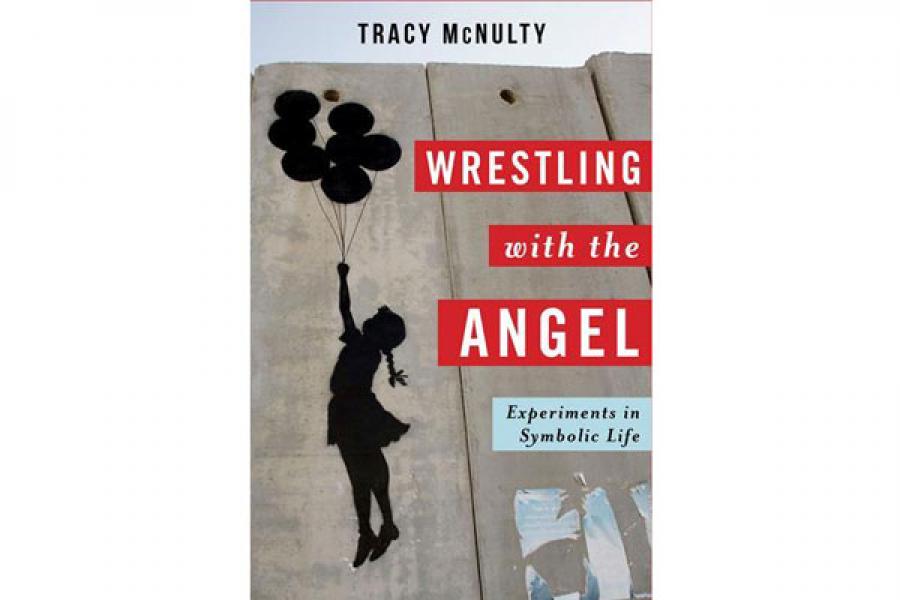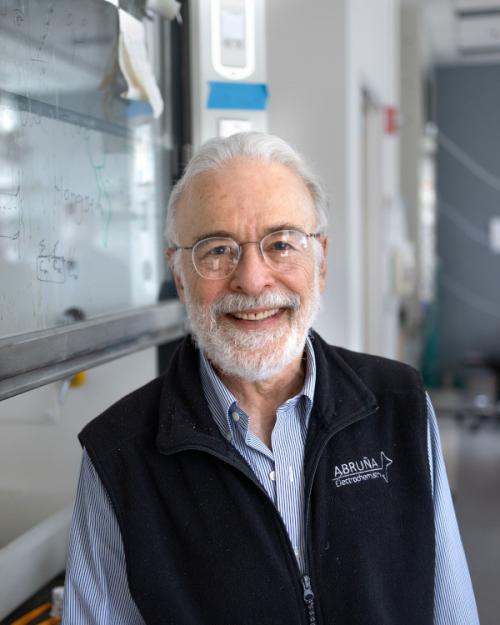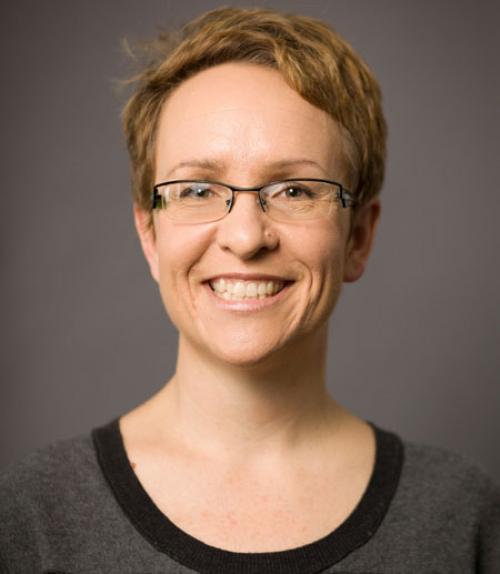When Tracy McNulty read “I Never Promised You a Rose Garden” at age ten, about a psychotic, the book had a profound impact: after college, McNulty went to France to study psychoanalysis and later trained with experts in psychosis treatment. With academic degrees in French and comparative literature and training in clinical psychoanalysis, McNulty has become known for combining these interests in her scholarship.
McNulty, chair of comparative literature and professor of French and comparative literature, teaches interdisciplinary courses on such questions as the origins of language, myth and symbolic thought, eroticism and perversion, and philosophical and psychoanalytic theories of subjectivity. Last semester, her Social Contract and its Discontents class examined political will, among other topics.
“In my own teaching, I’m always coming back to clinical examples. Freud is not just an important theoretical reference to know,” says McNulty. “I like teaching undergraduates because they really want to understand their own unconscious and that’s a lot of fun.”
Her last book, “Wrestling with the Angel: Experiments in Symbolic Life,” (Columbia University Press) is another of her interdisciplinary endeavors. In it, she addresses the function of formal and written constraints in psychoanalysis, political theory, and aesthetics.
“The book as a whole is concerned with the enabling function of limits, laws, barriers, constraints,” explains McNulty. “We often think about freedom as freedom from constraints, obstacles, barriers -- but what do we give up when we embrace that idea of freedom?”
In music, says McNulty, “creativity is something that comes from your own spin you put on the standards of the music’s form. What would it mean if we think about the law not simply as a kind of stop sign telling you what to do, but rather think of laws as also enabling freedom?”
As an example, McNulty cites the Constitution, a set of constraints that lawmakers must struggle with to reach a decision. The document doesn’t offer simple answers, but serves as an instrument through which lawmakers can hopefully reach a better decision.
“I’m interested in a number of different contexts where laws and especially written laws can have this effect of serving as an instrument that allows us to become more free, to come up with better answers, and not simply as something proscriptive,” says McNulty.
The book is concerned broadly with the legacy of Jewish law, as the first major instance of the written law in Western tradition, and how that legacy is overturned in Medieval Europe by “political theology,” the idea that the sovereign embodies the law in his own person. McNulty explains that this is predicated on Jesus having suspended the written law, replacing it with what he calls the new law of the spirit. Medieval politicians used this new “law” as theological justification for their approach to sovereignty: the sovereign is the one who embodies the state and can therefore suspend the laws.
“The only solution if there’s a revolution or other kind of exception is for the sovereign to suspend the law and make decisions by himself. Even George Bush in the war on terror appealed to that same model of political theology,” says McNulty. “As Adolf Eichmann famously said, ‘The Führer’s words have the force of law.’”
The book is also concerned with the practice of the symbolic in psychoanalysis and how that should be understood, using the figure of Moses and Mosaic law to explore the concept of the primal father and how Jewish law created a space between God and the people in which they could be free.
McNulty also explores how the inter-subjective relationship between the patient and the psychoanalyst can be useful for thinking about certain kinds of political situations. “I’m interested in thinking about how certain key political figures – Mao, Che Guevara -- often have the role with respect to the people with whom they work of encouraging them to break with whatever narrative had been organizing their practice, and to strike out in a new direction. I want to think about relations between people as having also this constrained function.”
McNulty’s current project takes an entirely new direction. Tentatively entitled “Libertine Mathematics: Perversions of the Linguistic Turn,” the project examines the interest in mathematical formalization and its championing as a kind of perfect language and vehicle of true transmission by many contemporary French philosophers. She looks, too at how libertine authors like the Marquis de Sade and Pauline Réage – as well as Freud -- used mathematics to represent human drives.
A version of this article also appeared in the Cornell Chronicle.





